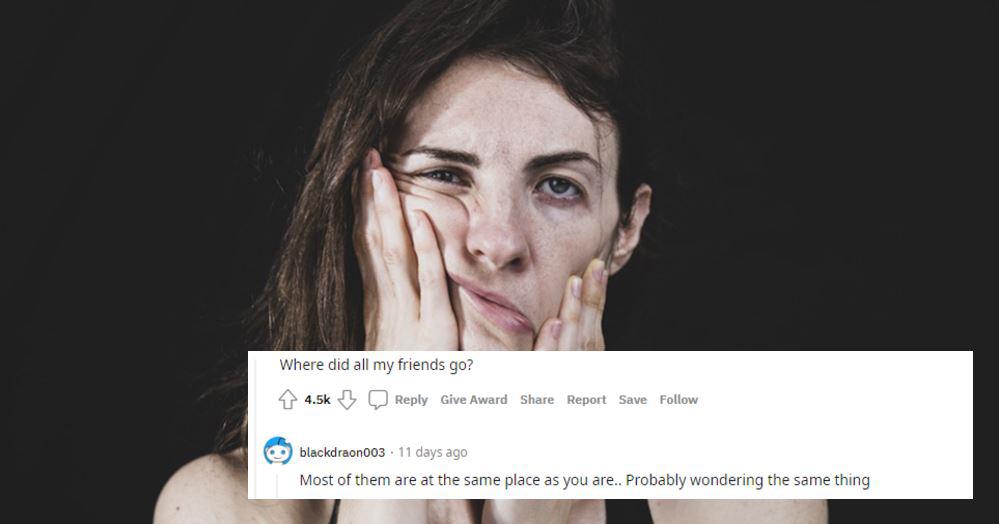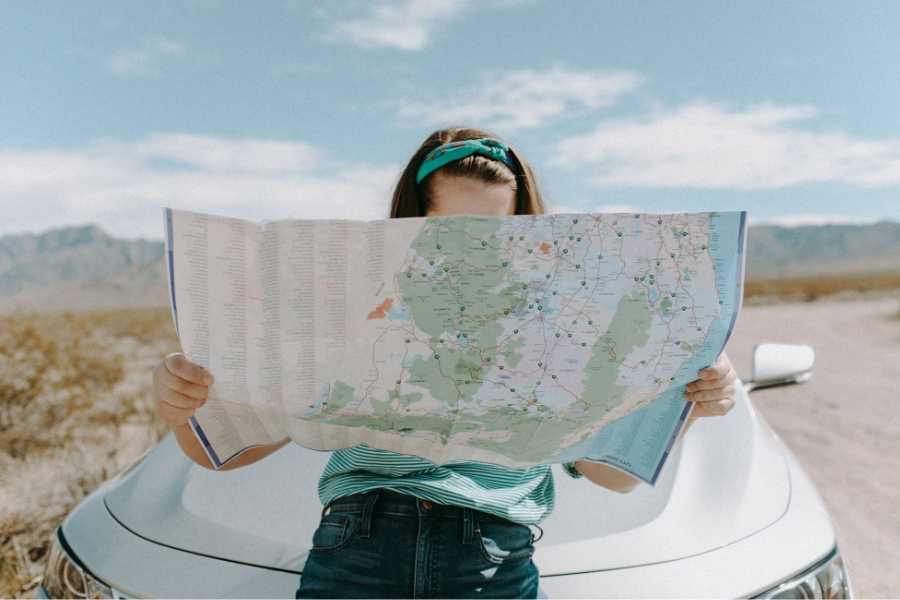Nothing can ever fully prepare you for being an adult. Once you leave childhood behind, the responsibilities, let-downs and setbacks come at you fast. It’s tiring and expensive, and there’s no easy-to-follow roadmap for happiness and success. A Reddit user asked the online forum, “What’s an adult problem nobody prepared you for?” and there were a lot of profound answers that get to the heart of the disappointing side of being an adult.
One theme that ran through many responses is the feeling of being set adrift. When you’re a kid, the world is laid out as a series of accomplishments. You learn to walk, you figure out how to use the bathroom, you start school, you finish school, maybe you go to college, and so on.
However, once we’re out of the school system and out from under our parents’ roofs, there is a vast, complicated world out there and it takes a long time to learn how it works. The tough thing is that if you don’t get a good head start, you can spend the rest of your life playing catch-up.
Then, you hit middle age and realize that life is short and time is only moving faster.
Adulthood also blindsides a lot of people because we realize that many adults are simply children who grew older. The adult world is a lot more like high school than a teenager could ever imagine.
The Reddit thread may seem a bit depressing at first, but there are a lot of great lessons that younger people can take to heart. The posts will also make older people feel a lot better because they can totally relate.
Being an adult is hard, exhausting and expensive. But we’re all in this together and by sharing the lessons we’ve learned we can help lighten each other’s load just a bit.
Here are 21 of the most powerful responses to the question: “What is an adult problem nobody prepared you for?”
1. Lack of purpose
“Lack of purpose. All your young life you are given purpose of passing exams and learning, then all of a sudden you are thrown into the world and told to find your own meaning,” — Captain_Snow.
2. No bed time
“You can stay up as late as you want. But you shouldn’t,” — geek-fit
3. Friendships
“Where did all my friends go?” — I_Love_Small_Breasts
Most of them are at the same place as you are … Probably wondering the same thing,” — Blackdraon003
4. Bodily changes
“I’m closer to fifty than forty, would have been nice to be better prepared for some of the ways your body starts to change at this point that don’t normally get talked about. For instance your teeth will start to shift from general aging of your gums,” — dayburner.
5. People don’t change
“Didnt know that other adults have the emotional intelligence of teenagers and its almost impossible to deal with logically,” — Super-Progress-6386
6. Money
“$5K is a lot to owe, but not a lot to have,” — Upper-Job5130
7. Our parents age, too
“Handling the decline and death of your parents,” – Agave666
8. Free time
“Not having a lot of free-time or time by myself,” — detective_kiara
9. No goals
“Not having a pre-defined goal once I was out of college. Growing up my goals were set for me: get through elementary school! then middle school! Then high school, and get into college and get a degree, then get a job, and then…? Vague “advance in your career, buy a house, find a spouse, have a kid or multiple, then retire.” At 22 I had no idea how to break that down more granularly,” — FreehandBirdlime
10. Constant upkeep
“Life is all about maintenance. Your body, your house, your relationships, everything requires constant never ending maintenance,” — IHateEditedBGMusic
11. Exhaustion
“Being able to do so many things because I’m an adult but too tired to do any of them,” — London82
12. Loneliness
“Being an adult feels extremely lonely,” — Bluebloop0
13. Dinner
“Having to make dinner every. Fucking. Day,” — EndlesslyUnfinished
14. Time changes
“The more life you’ve lived, the faster time seems to go,” — FadedQuill
15. You’re responsibile, even if you didn’t mean it
“You are held to account for bad behaviour for which you are negligent even if you had no intention to cause harm. As a lawyer, I see this all the time. People don’t think they’re responsible for mistakes. You are,” — grishamlaw
16. Work is like high school
“The intricacies of workplace politics,” — Steve_Lobsen writes. “
“When you’re in school, you think that you won’t have to deal with gossiping and bullying once you leave school. Unfortunately, that is not true,” — lady_laughs_too_much
17. Nowhere to turn
“How easy it is to feel stuck in a bad situation (job, relationship, etc) just because the cost and effort of getting out can seem daunting. And sometimes you just have to accept a figurative bowl full of shit because you can’t afford to blow up your life,” — movieguy95453
18. The happiness question
“Figuring out what makes you happy. Everyone keeps trying to get you to do things you’re good at, or that makes you money, but never to pursue what you enjoy,” — eternalwanderer5
19. Constant cleaning
“The kitchen is always dirty. You’ll clean it at least three times every day,” — cewnc
20. Life costs money
“One adult problem nobody prepared me for is how expensive everything is. I always thought that as an adult I would be able to afford the things I wanted, but it turns out that’s not always the case! I’ve had to learn how to budget and save up for the things I want, and it’s been a difficult process,” — Dull_Dog_8126
21. Keeping above water
“All of it together. I was relatively warned about how high rent is, car bills and repairs, how buying healthy food is expensive as hell but important for your health, how to exercise and save what you can, my parents did their best to fill in my knowledge about taxes and healthcare and insurance that my schooling missed, about driving and cleaning a household, about setting boundaries at work but working hard and getting ahead if you can, about charity and what it means to take care of a pet and others, about being a good partner if you were lucky enough to have one, about how dark and messed up the world is when you just read the news and what all that means to me and my community… I was reasonably warned about all of it.
“No one could have ever prepared me for how hard doing all of it at the same time and keeping your head above that water would actually be,” — ThatNoNameWriter
This article originally appeared two years ago.








































